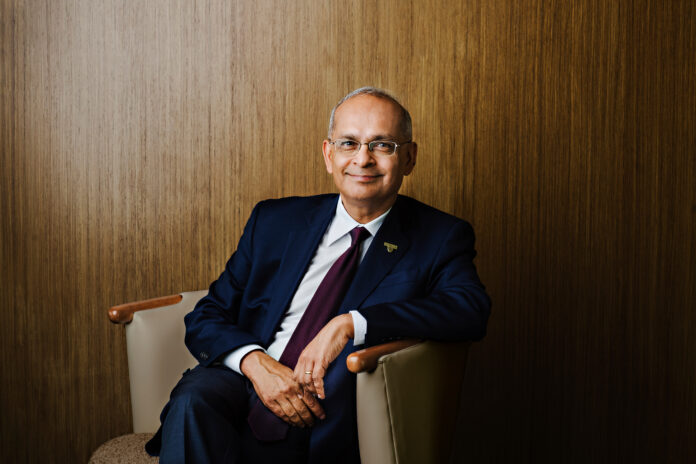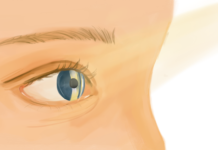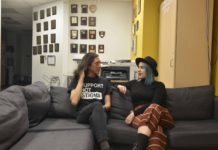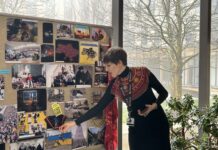As of July 1, the University of Waterloo welcomed a new president. Vivek Goel is an accomplished physician, researcher and academic administrator, whose work in public health was recognized last December when was appointed as a Member of the Order of Canada.
In an interview with Imprint, Goel said he is motivated by a desire to ensure that every student has access to the best possible opportunities and experiences, which he believes will help transform the national approach toward public health.
At UW, Goel said he plans to uphold the university’s core values — curiosity, courage, engagement and belonging — and champion academic freedom and integrity.
Imprint: Can you describe, in your own words, your role as president and vice-chancellor at the University of Waterloo?
Goel: Officially, the president is the leader for the university in internal-external matters. They work closely with the university’s Board of Governors, who are ultimately responsible for the work of the school, as well as the Senate, which is the highest academic body.
Leaving the technical part of [the role] aside, I think the important part of the president’s role is to provide inspiration and energy for the community to rally around big issues. I see my role as helping to ensure that issues that are of importance to the community are heard and acted upon.
As well, I think an important part of the role is being a champion for academic integrity, for the quality of the academic experience and the quality of the student experience, and in particular, upholding academic freedom, because that’s what helps [us] give our institutions, our universities, such significant role in society — that we foster and preserve academic freedom.
Imprint: What was one of the most important non-academic lessons you learned during your time as a student?
Goel: There’s as much to learn outside of the classroom as there is in the classroom. The most important parts of your university experience can be participating in different co-curricular activities, like student government, athletics, arts and culture activities or just hanging out and meeting new friends and people that will become [your support system and your network] — people you’ll be able to call on at different stages of your life.
For me, that was a very important part of my experiences in all my degrees. I was always involved in clubs and different roles in student government. The lessons I learned there have served me well as I’ve moved into academic administration and academic leadership roles, from things as basic as chairing a meeting, to understanding how you get teams of people from different disciplines to come and work together.
Imprint: Over the past year, you worked with the federal government’s COVID-19 Immunity Task Force and as a Scientific Advisor for the CanCOVID Research Network. Can you tell us about your experience working with the government to combat COVID-19 in Canada?
Goel: One of the big challenges always is taking the knowledge and science that’s been generated, and bringing that into decision making.
When you’re in a major emergency event, like the pandemic, that becomes even more challenging: It takes time to do the research, to synthesize it, bring it together from across different disciplines and different parts of the world. But in that emergency, you’re trying to do that in real-time.
At the same time, we’re also seeing more openness and transparency, which is really good. We want research to be highly accessible, available globally. But what that has meant is, for example, we have preprints — research that’s not yet peer-reviewed being made available, and the media reporting on it. That can lead to confusion as unvalidated results are being debated. And so the task forces in the different groups I was involved with over the past year tried to help bring the academic and the research community together with people in government to address urgent and important questions.
The University of Waterloo in my view has been a leader in helping to prepare graduates to work in very different types of environments. We can continue to think about what the work environments of the future are going to look like and how people can bring the latest research and knowledge to the work they’re doing and how they can be good consumers of that research. Whether as a graduate you go to work in government in a policy environment or you’re working in a completely different setting, what the pandemic has also shown us is that we need every citizen to be better informed.
The pandemic has also shown us the social challenges that remain in society, [how] certain people suffered the greatest consequences. So it also shows the importance of education in social sciences and the humanities and understanding how we can change things for the better. So this past year has been informative for everyone about these big challenges ahead of us. My experiences working with the government as they tried to address many of these big challenges were informative too.
Imprint: Your work in public health, especially during the pandemic, was commended this past December when you were appointed to the Order of Canada. What did it mean to you to be recognized for your contributions to the nation’s wellbeing?
Goel: It was particularly significant for me, for that honour to come during the pandemic. Part of the importance of the recognition was not just for my contributions, but the contributions of everyone working in public health. [Public health workers] are often not well recognized, particularly when there’s not a pandemic or a big outbreak. But people in public health work every day to keep people healthy. They keep your restaurants and water supply safe. They work to promote healthy living, [such as] a good diet and physical activity and environmental health.
During the pandemic, people talk about the contributions of frontline health care workers, which are very, very important, with people working in intensive care units and emergency rooms, doctors, nurses and all the other health professionals that have had to work so hard for over 18 months.
But when was the last time you saw the news featuring a public health contact tracer, or someone working in a public health lab? These people are invisible — they’re not recognized. For me to receive the Order of Canada during the pandemic, in part also was to help recognize that sort of unsung work of people on the front lines of public health.
Imprint: During the pandemic, you transitioned once again from academia to public health, fulfilling a much-needed role in Canada’s fight against COVID-19. Why did you choose to return to academia, and what drew you to the University of Waterloo in particular?
Goel: Part of going to Public Health Ontario, now almost 13 years ago, was to help rebuild public health [in the province] after SARS. We got to what I thought was a very strong agency, and then people started to forget about SARS. After I left, its budget was cut, so it wasn’t ready [for the pandemic]. And for the Public Health Agency of Canada, which also got created after SARS, a similar sort of pattern happened. There’s a boom and bust sort of cycle for public health: when something bad happens, people invest in it, and when the bad things don’t happen, people stop investing.
I’ve seen this boom-bust cycle over a few generations. And so part of my conclusion was, I could stay on the health side, and certainly would have had opportunities to work at rebuilding things at the national or provincial level. Or, I could come back into the academic sector and try to work with colleagues to promote thinking about public health in the longer term, from both the education side and the research side. I felt that working in a university setting would actually give me a better opportunity to create a more sustained, long-term response and support for public health.
What drew me to the University of Waterloo was that the university had put together a strategic plan, which was approved back in the fall of 2019, just before the pandemic, that laid out a very bold vision for the school. I think it translates well into many of the things that we need to be doing in terms of the research, looking at broad, interdisciplinary initiatives, including health technology and society.
On the educational side, thinking about how we support our students to be lifelong learners and to be able to address the big global challenges ahead of us. It’s not just about pandemics, it’s about everything else that has been revealed in the past year and a half, including what we continue to see about long-term challenges around sustainability and the environment.
I think we can take the energy the world puts toward dealing with COVID-19, and put it toward big challenges related to the environment and sustainability, so we can make a big difference with that set of issues. With what is laid out in the strategic plan, I think the University of Waterloo is really well-positioned to address those big global challenges.
































